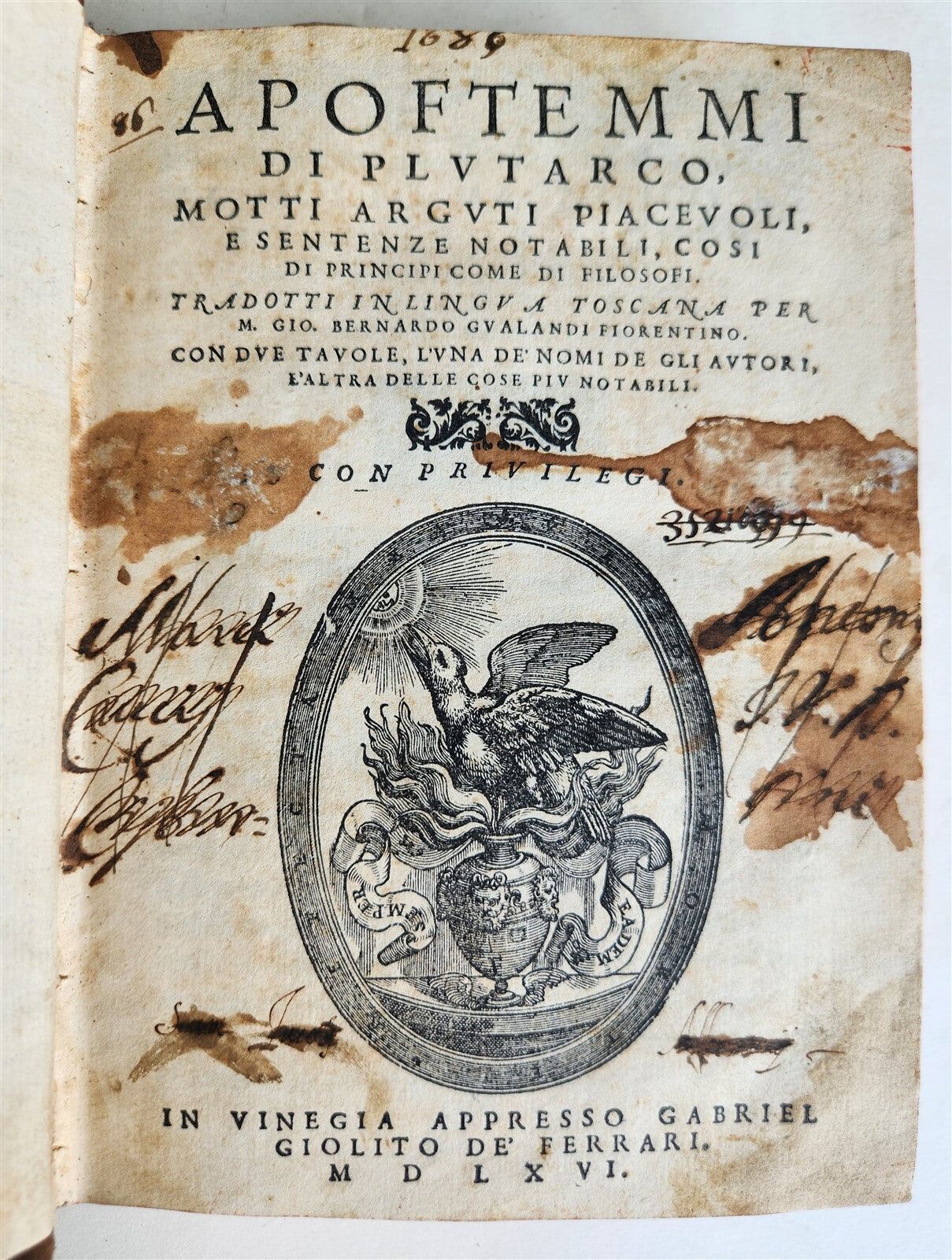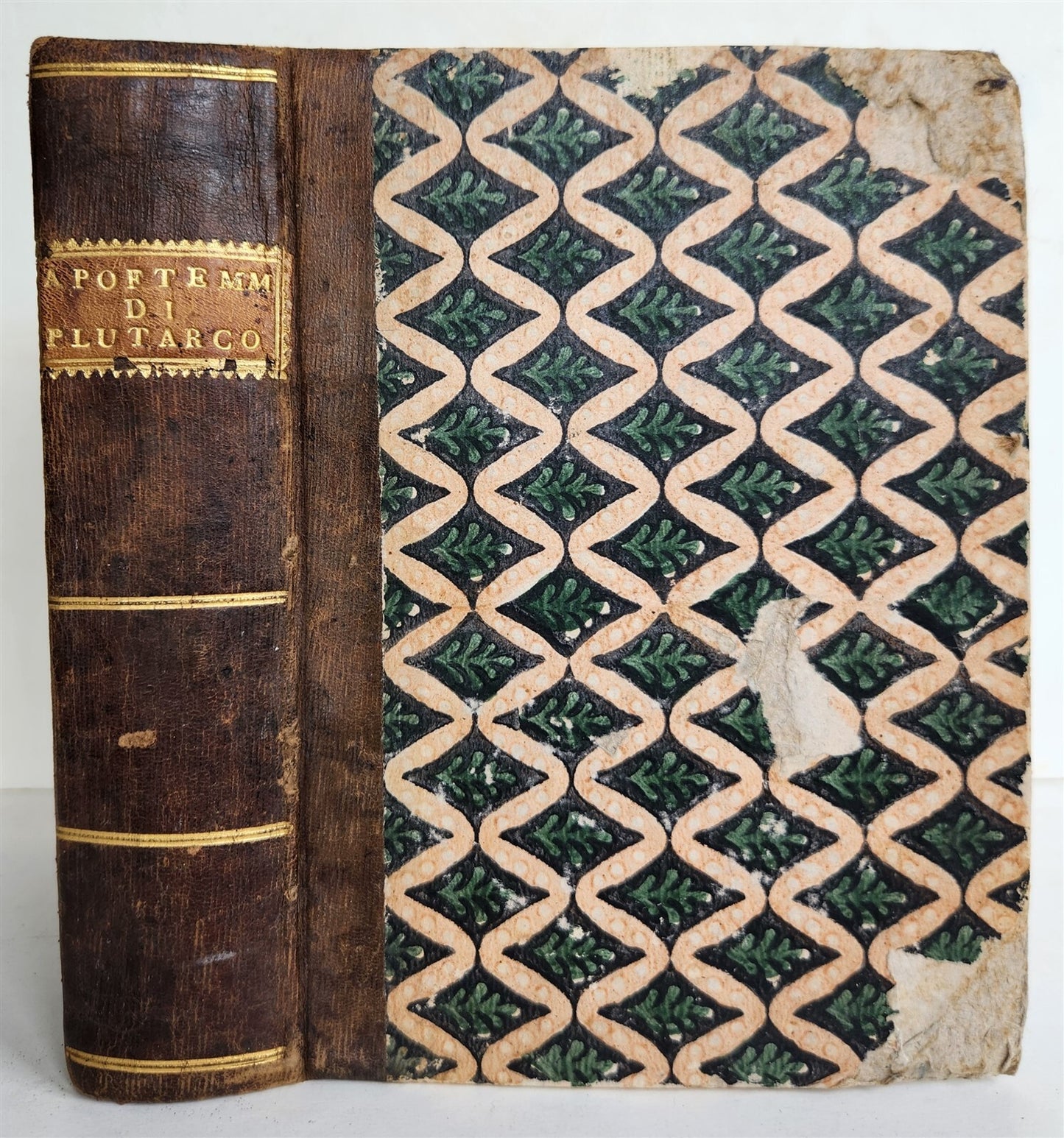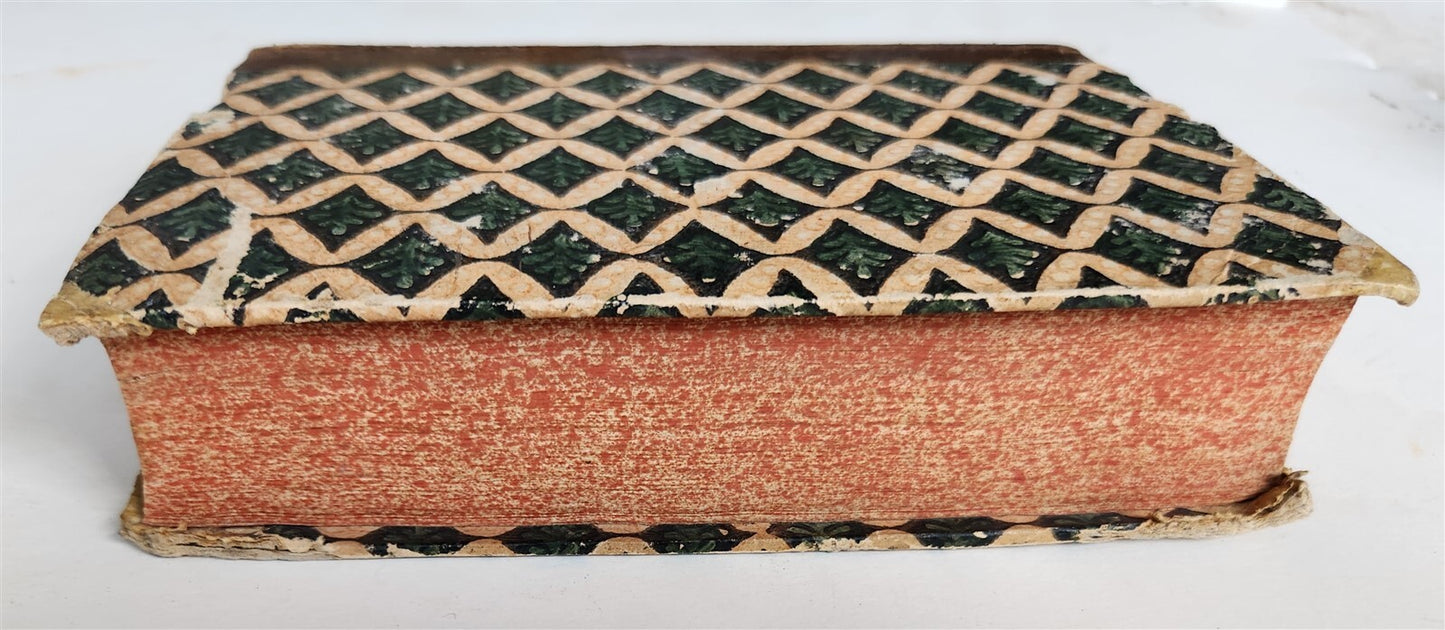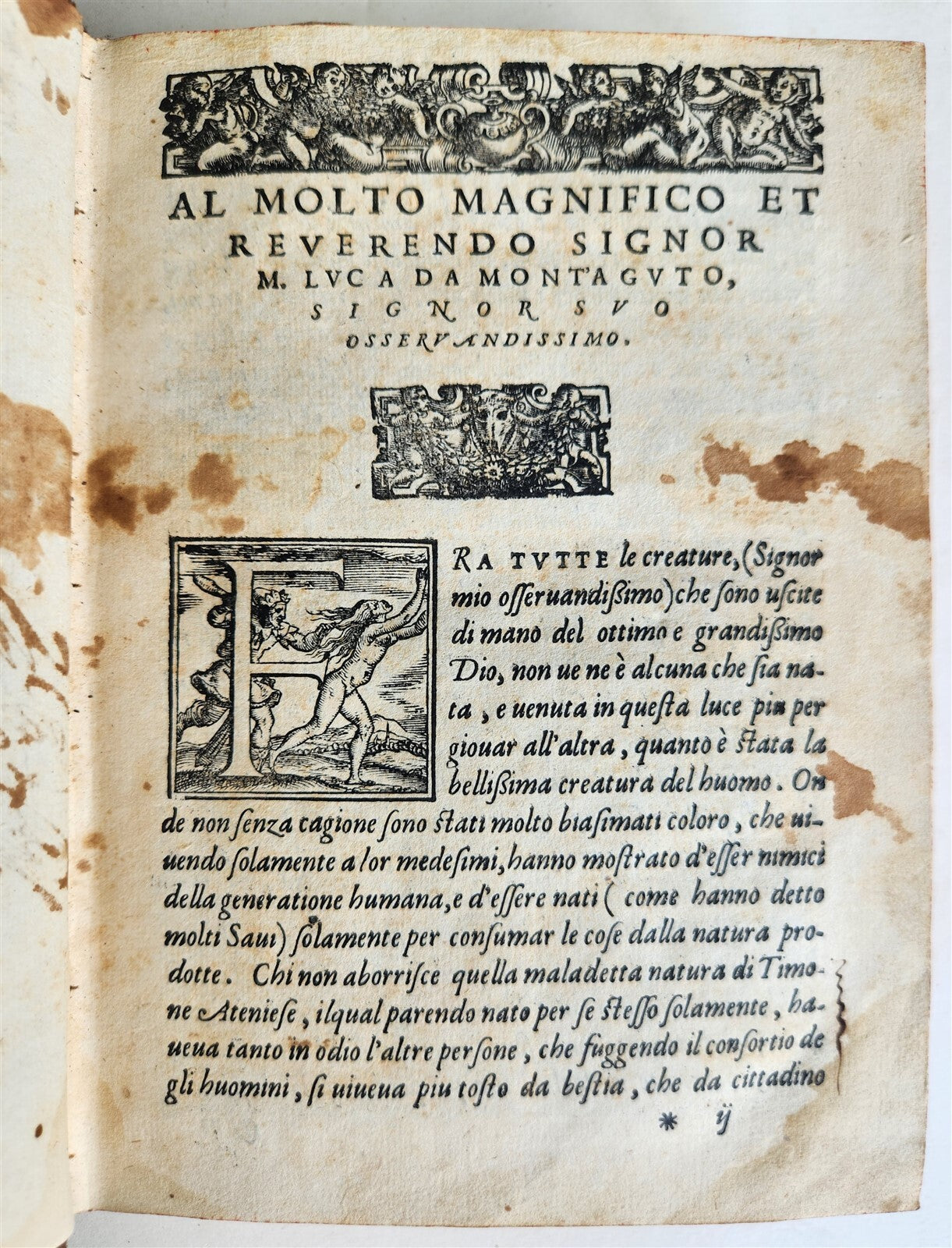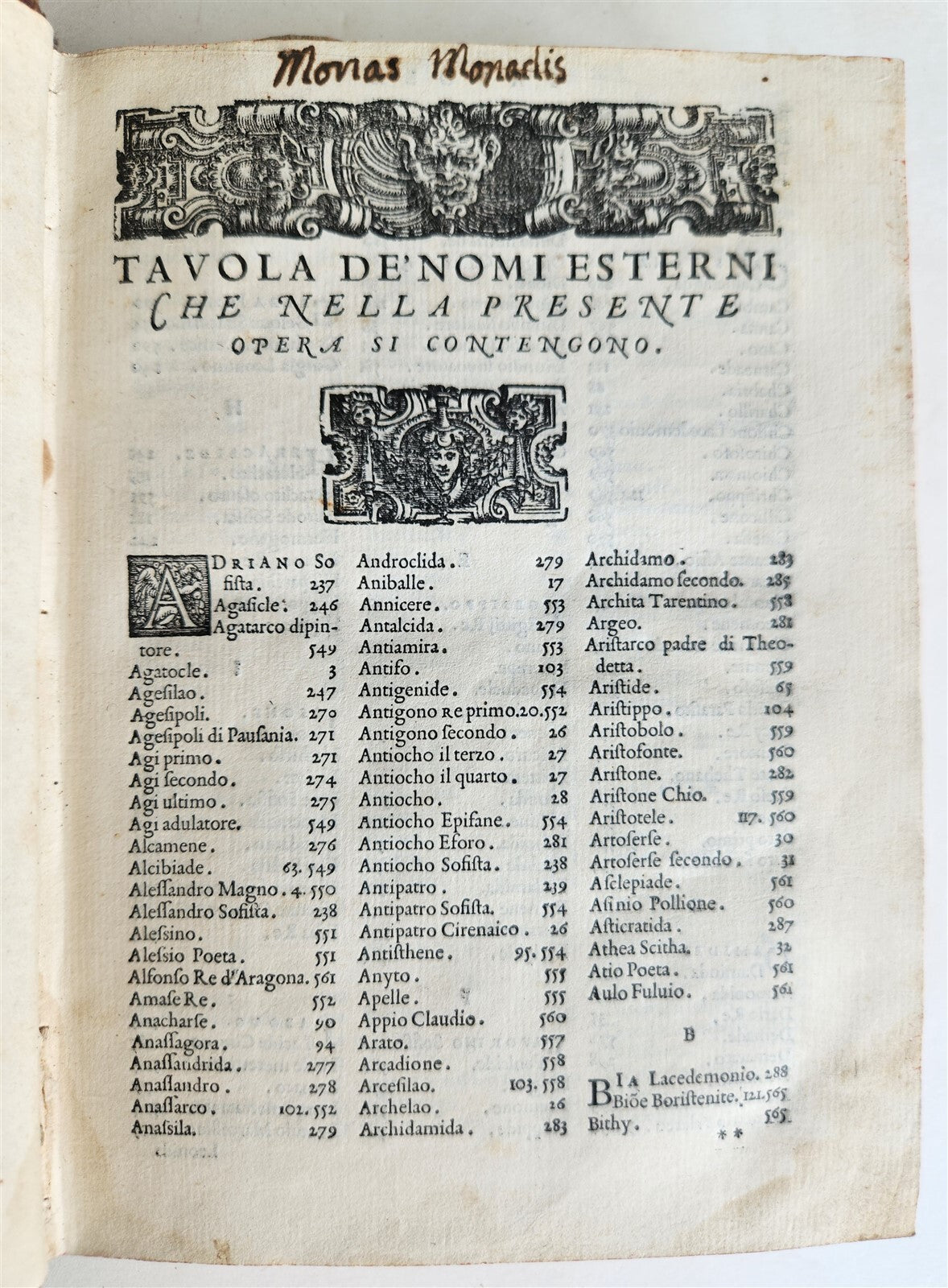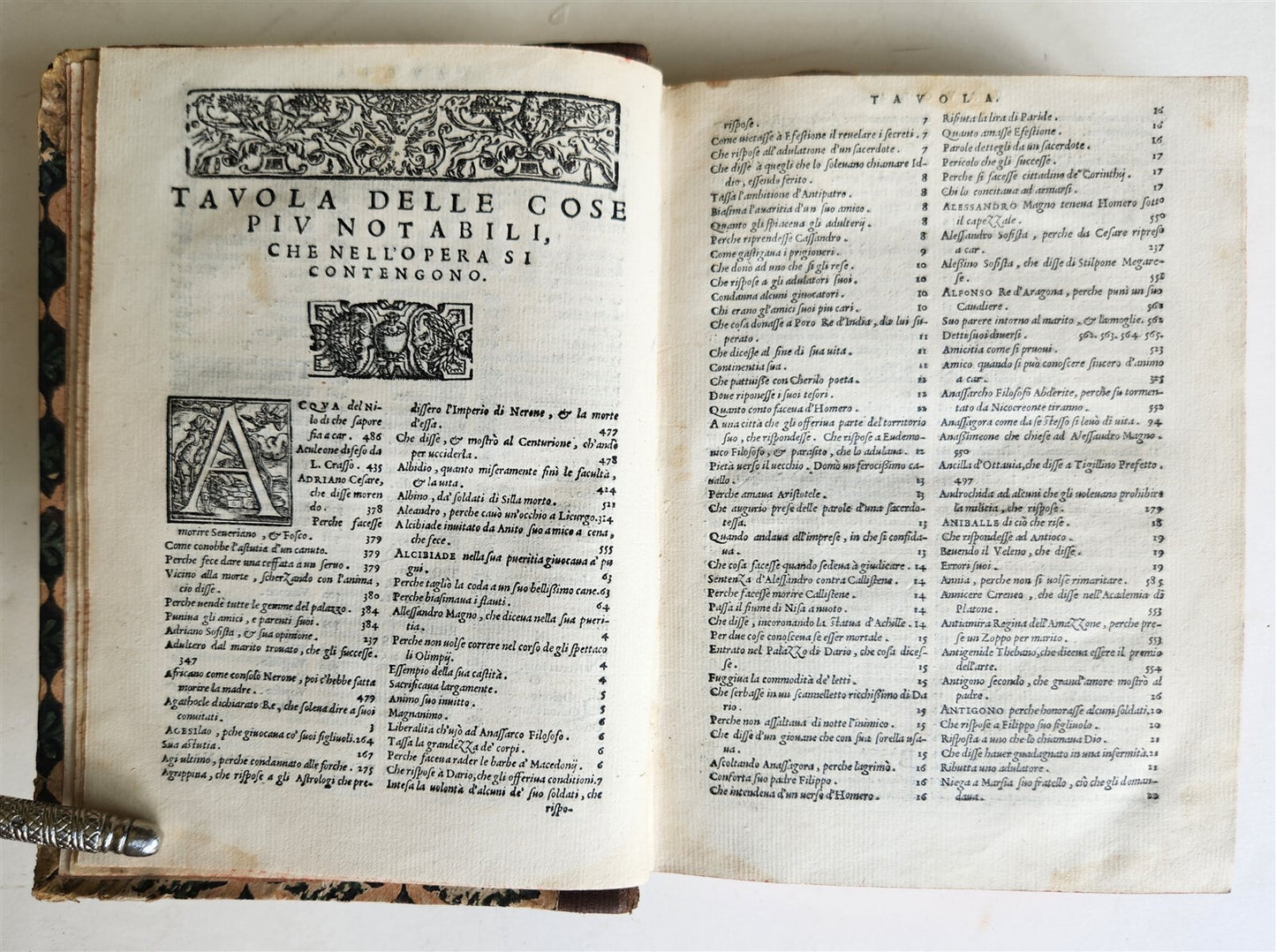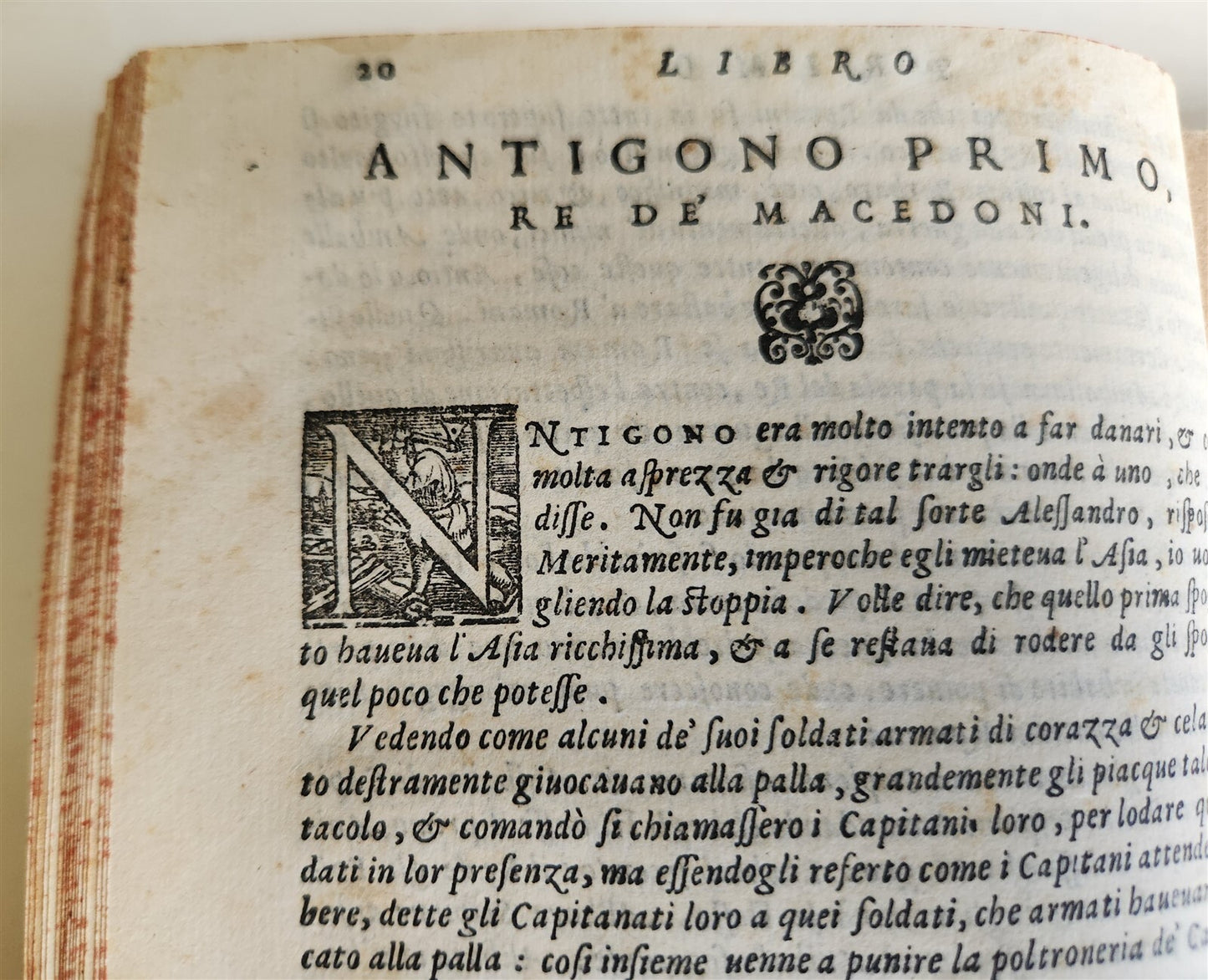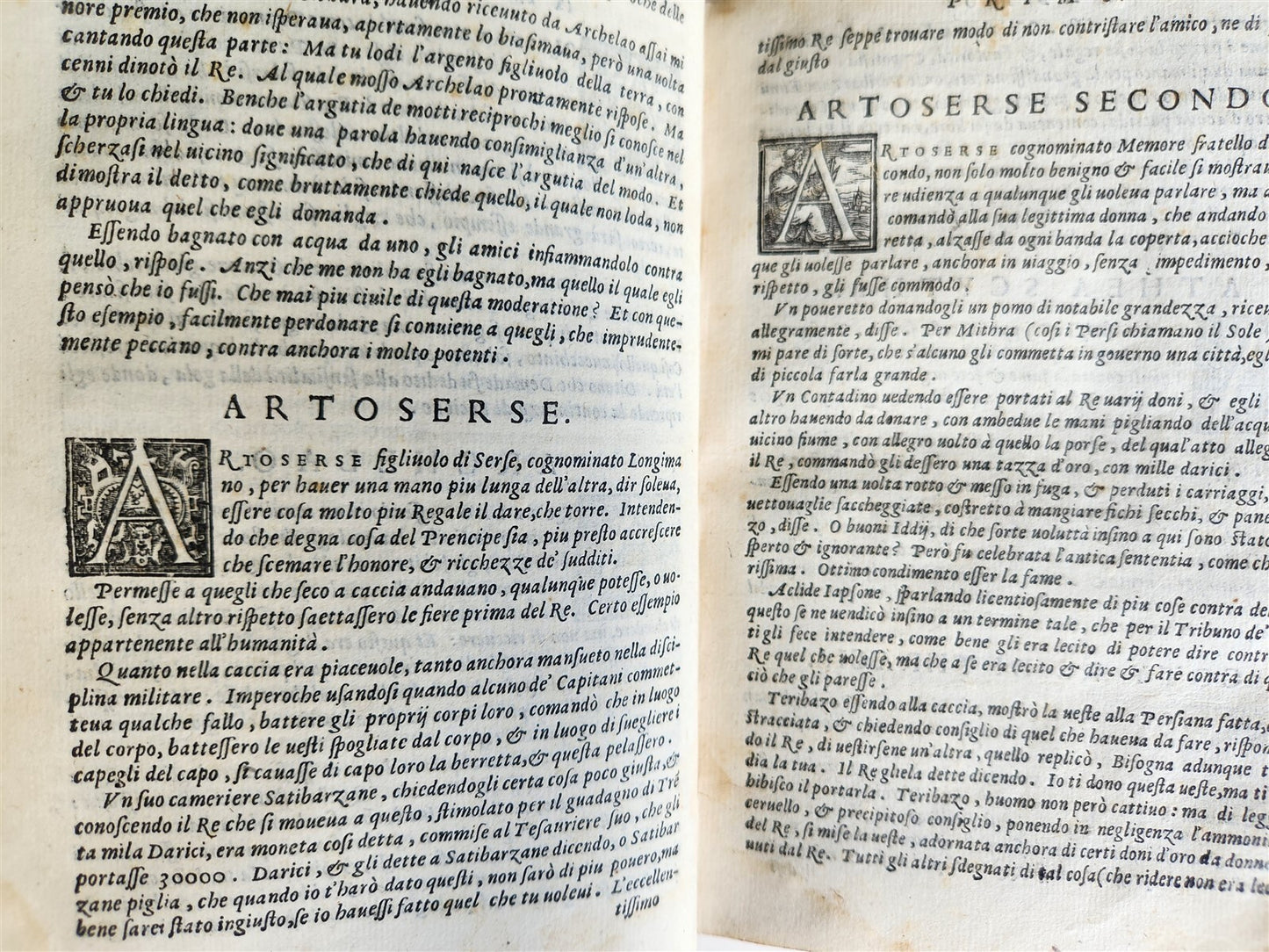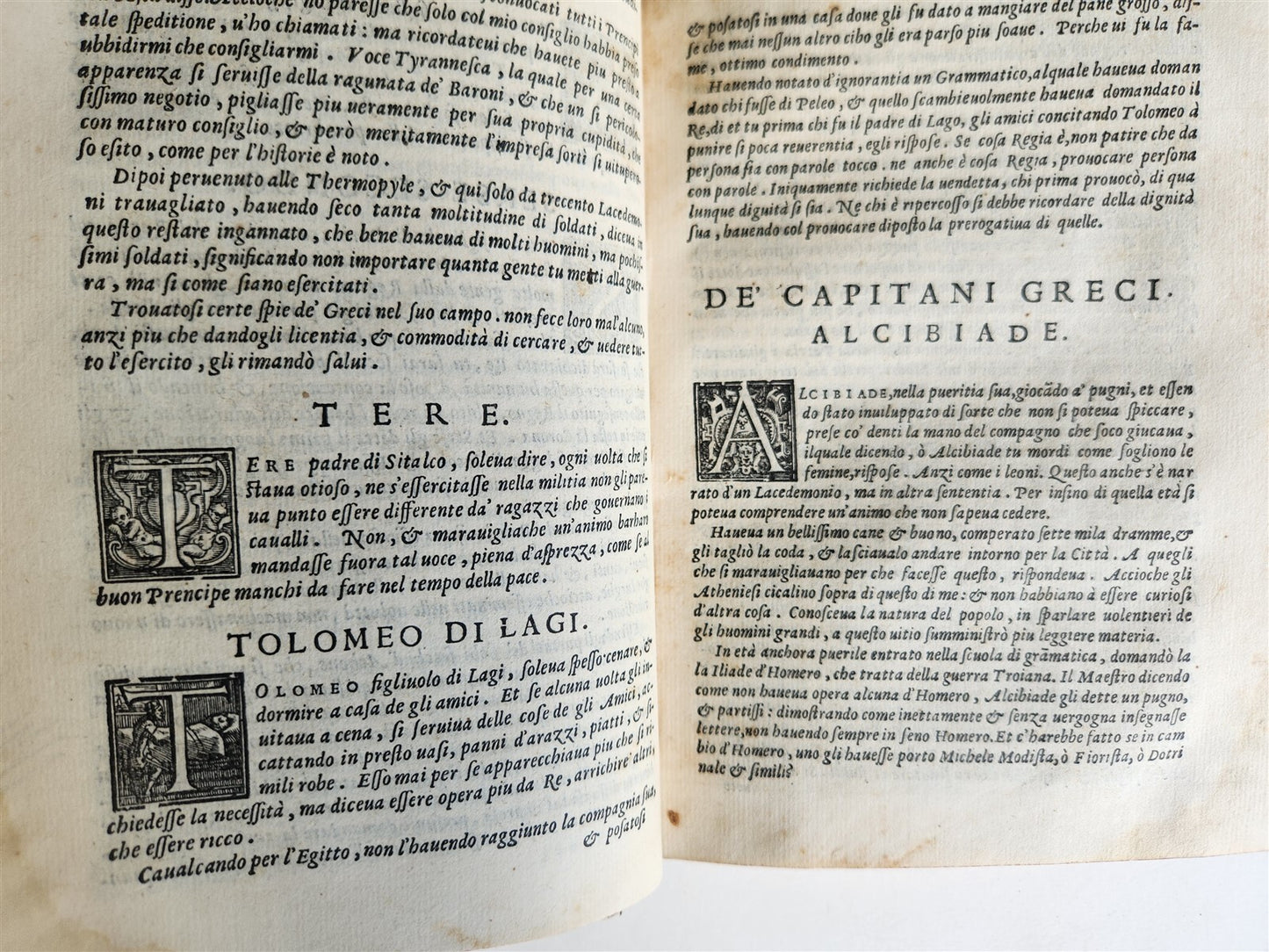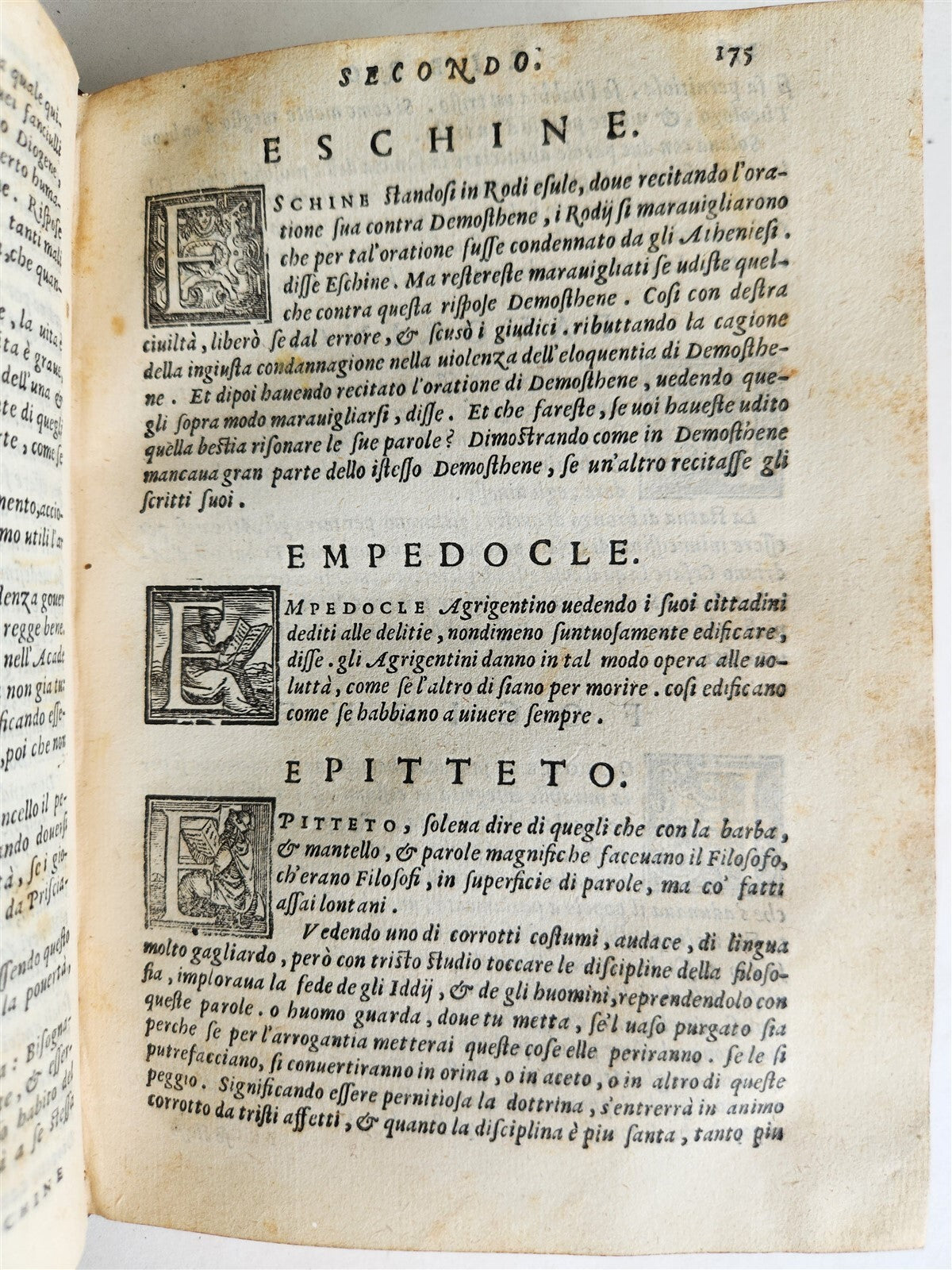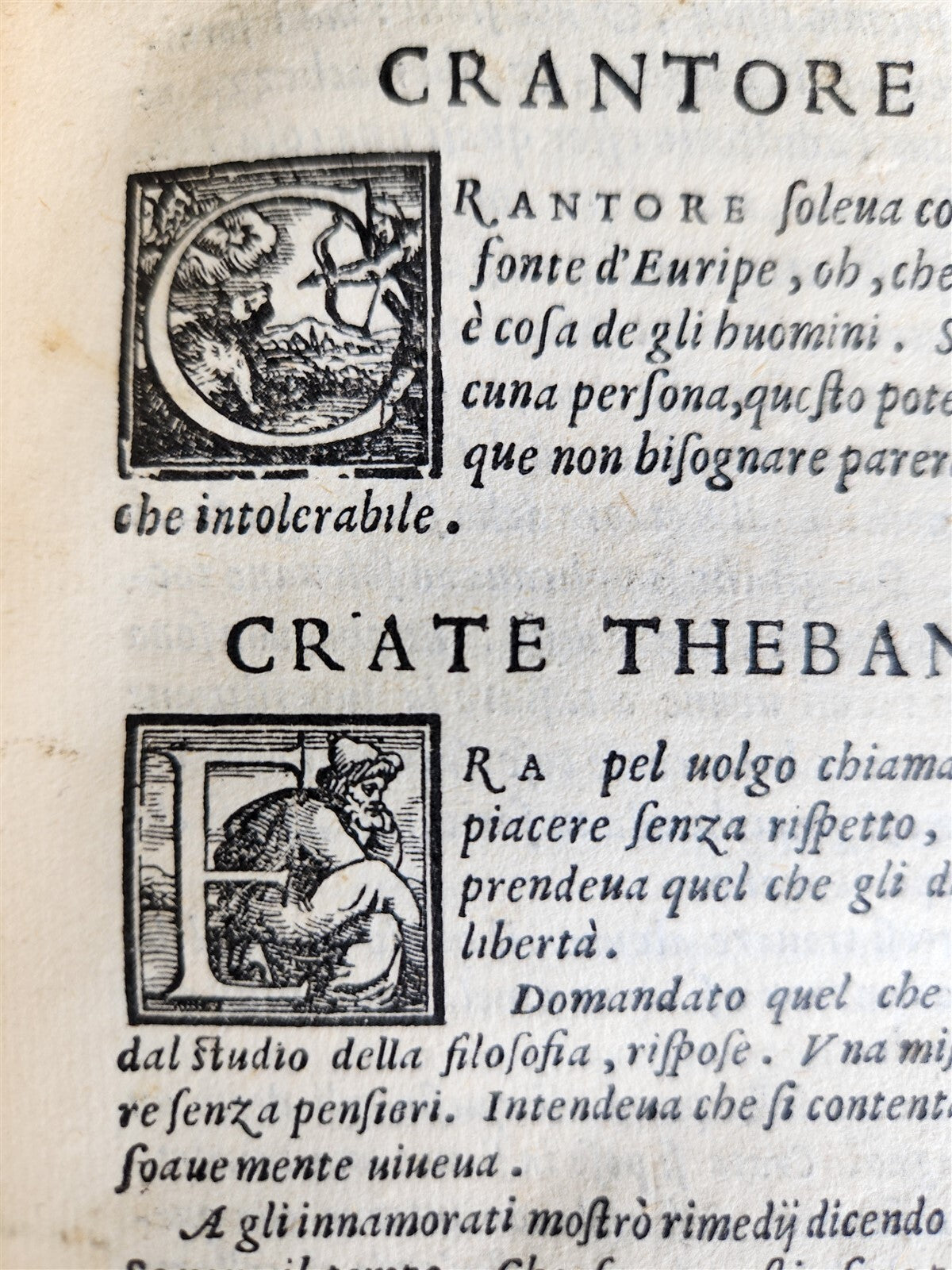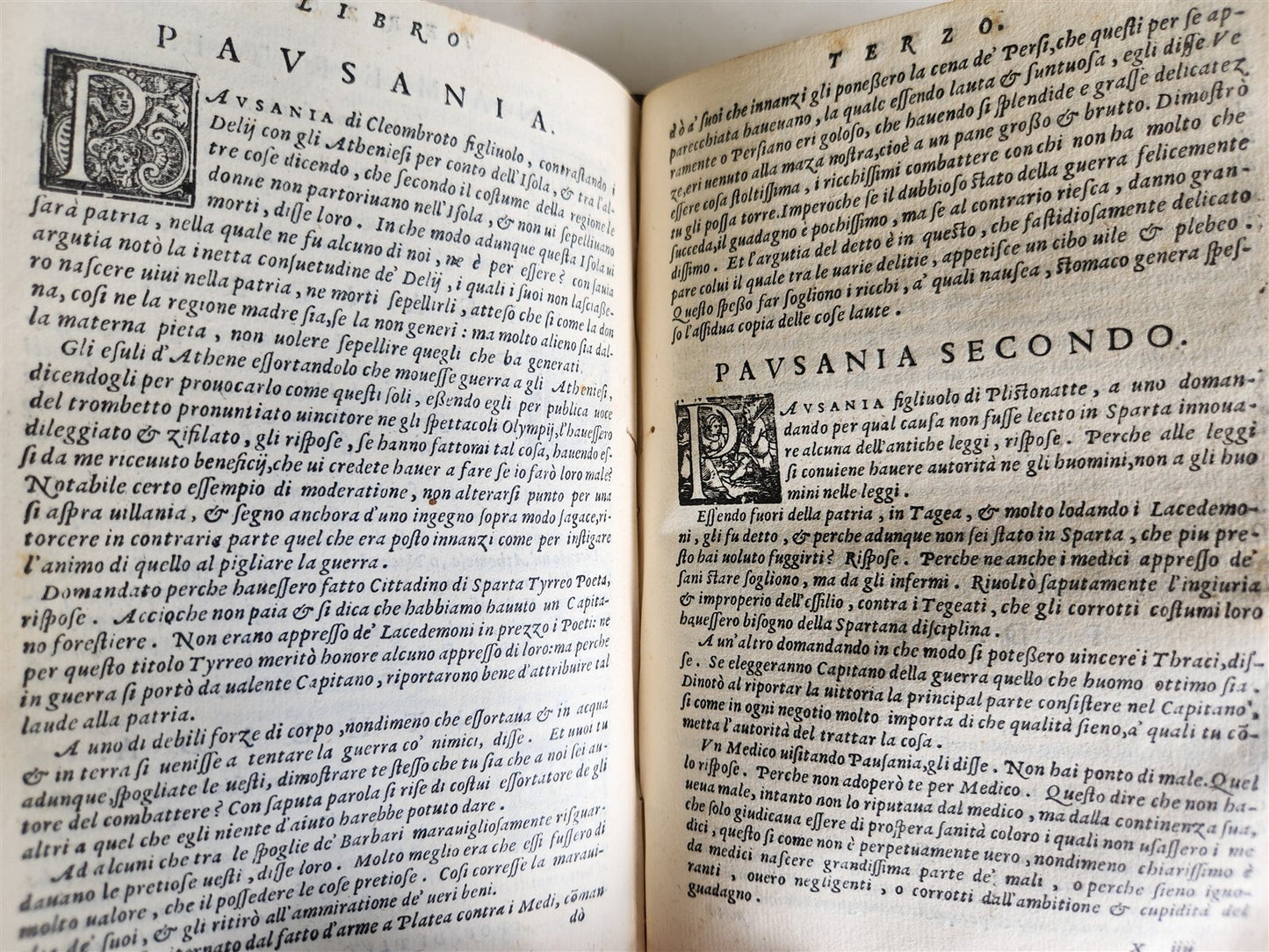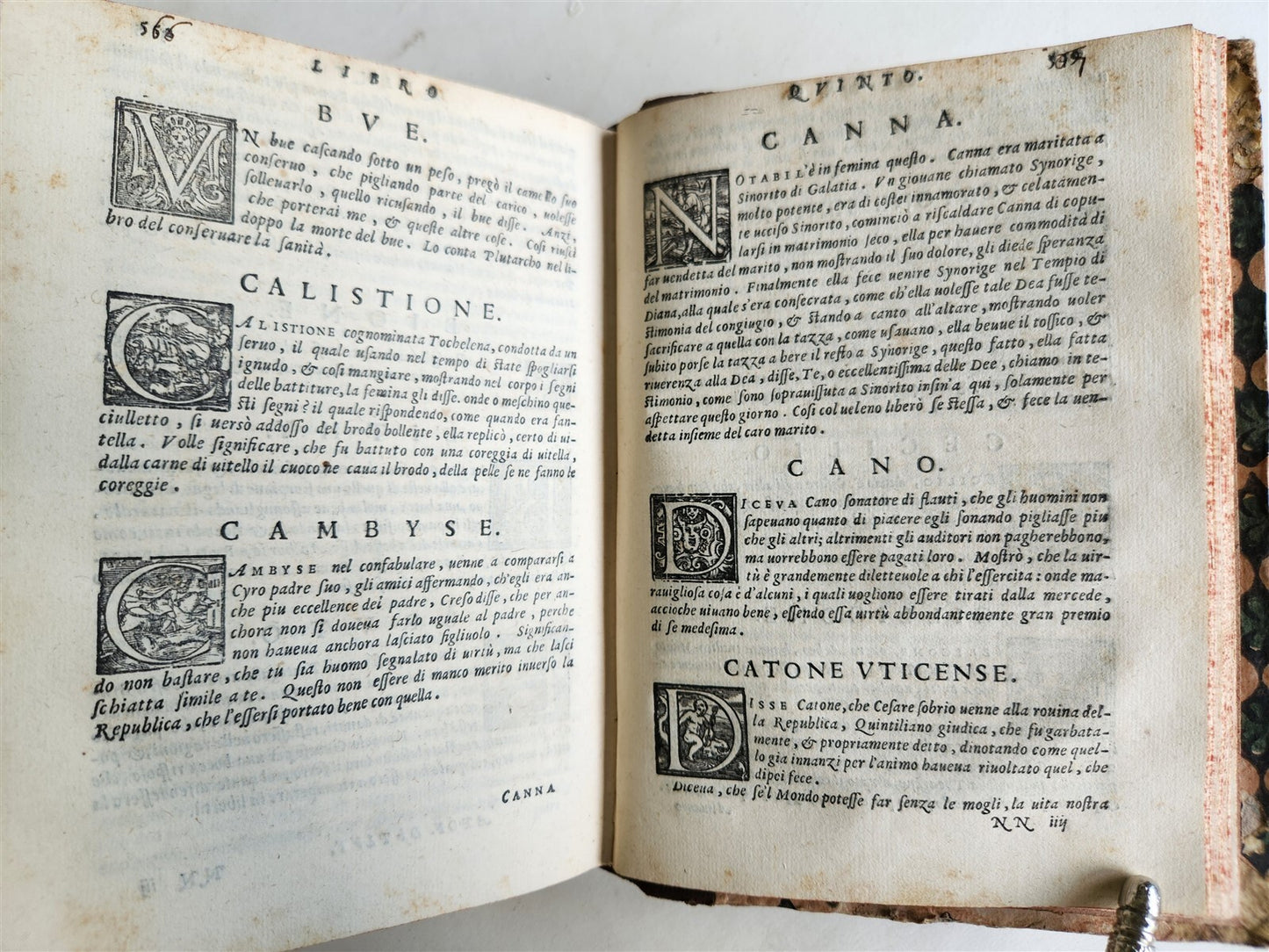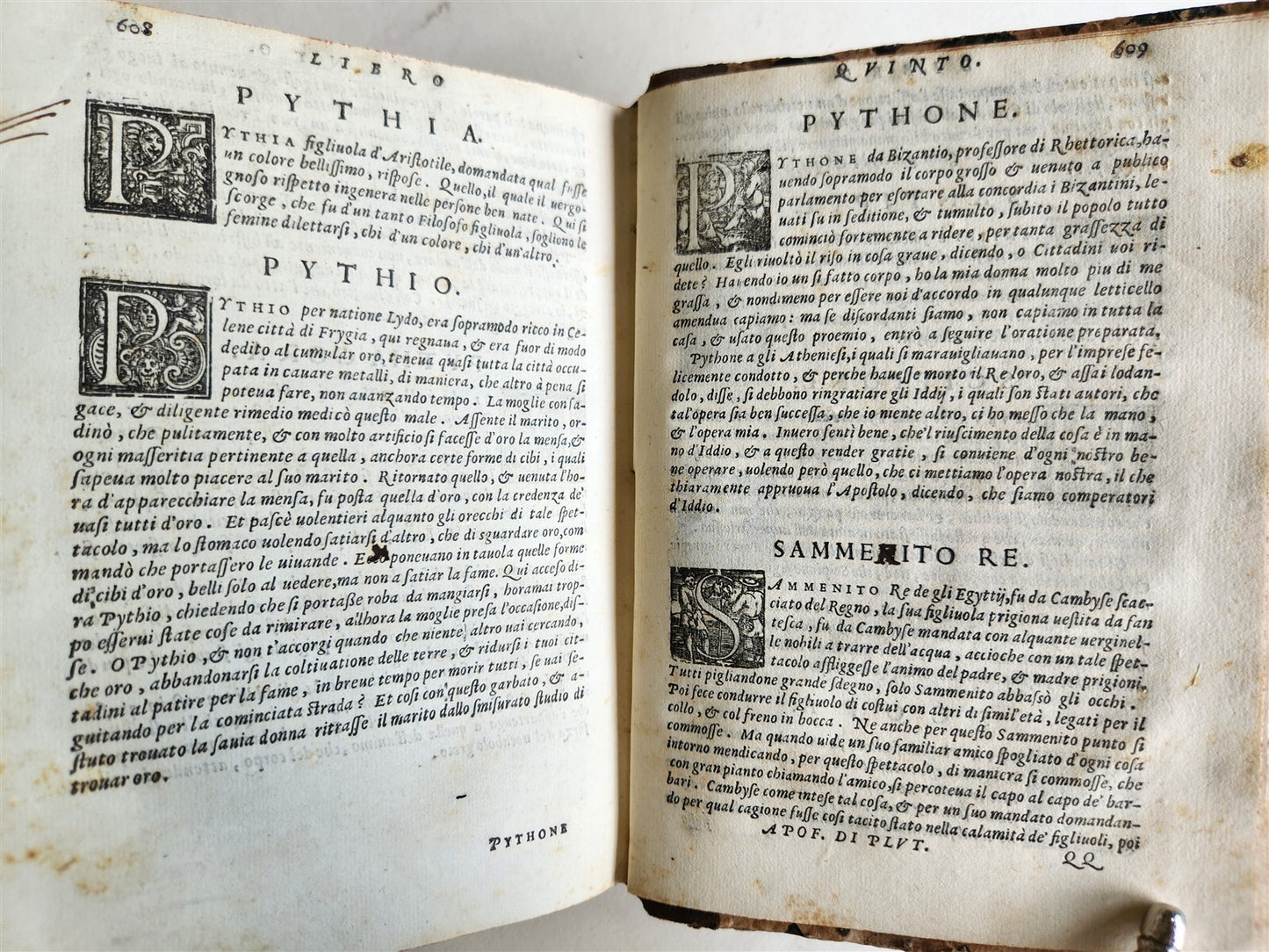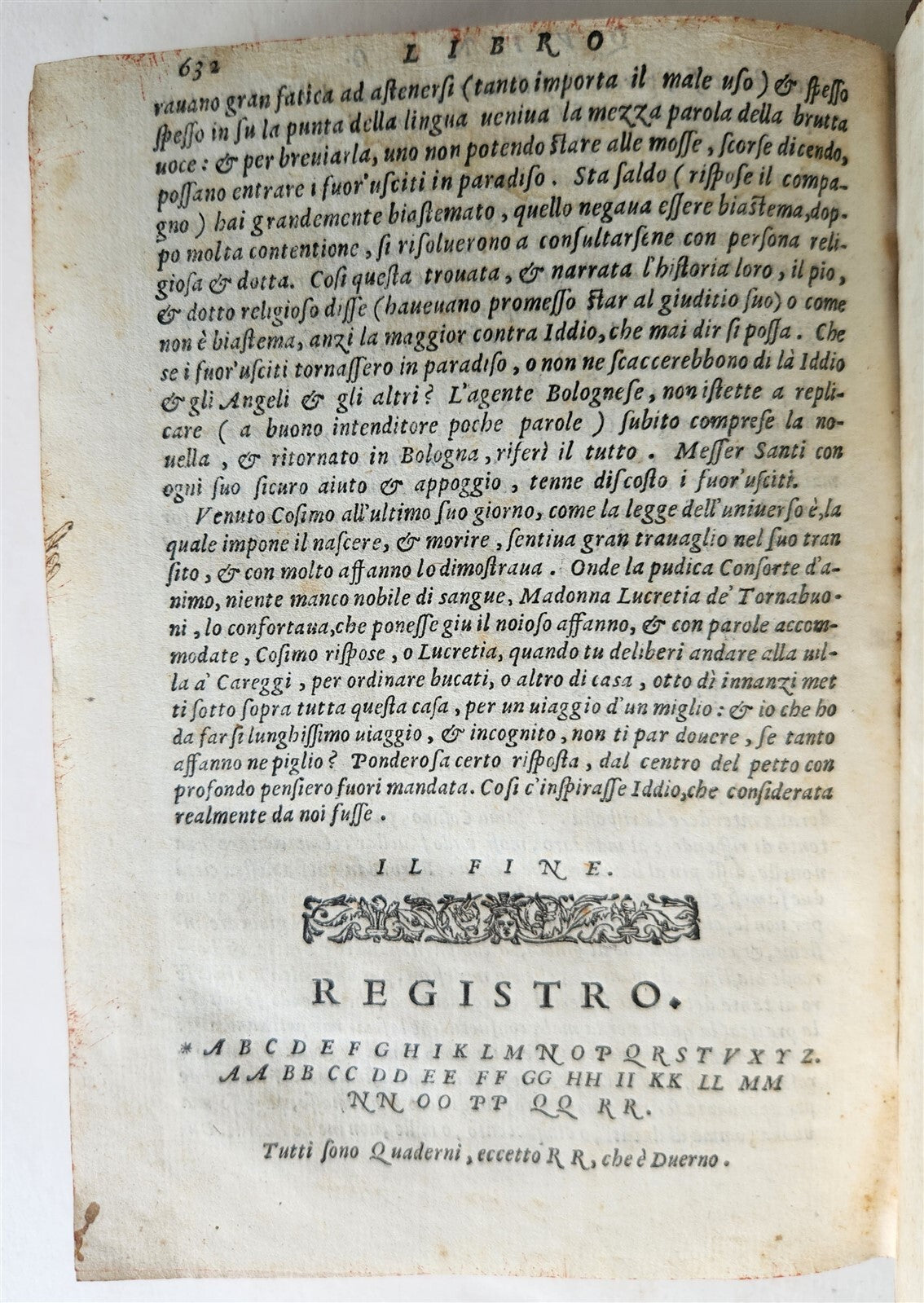Motka
1566 PLUTARCH antique 16th CENTURY in ITALIAN Apoftemmi di Plutarco
1566 PLUTARCH antique 16th CENTURY in ITALIAN Apoftemmi di Plutarco
Couldn't load pickup availability
Plutarchus Apoftemmi di Plutarco, motti arguti piaceuoli, e sentenze notabili, così di principi come di filosofi. Tradotti in lingua toscana per M. Gio. Bernardo Gualandi Venice, Gabriel Giolito de Ferrari; 1566nineteenth-century half leather with decorative cardboard covers, gilt title and decorations on the spine [28], 632 pp.Some damage to the front cover, faded dampstain to the lower corner of few leaves.Size 5 3/4 by 7 3/4 inchesText in Italian==============
"Apophthegmata" generally refers to collections of apophthegms, which are concise and pithy sayings or maxims attributed to famous figures from classical antiquity.
Plutarch, the Greek philosopher, historian, and biographer, is particularly known for his collections of apophthegms within his larger work, the Moralia.
These collections include:
Apophthegmata Laconica (Sayings of Spartans):
These are a collection of sayings and maxims attributed to the Spartans, known for their brevity and wit.
Apophthegmata Regum atque Imperatorum
(Sayings of Kings and Commanders):
This collection focuses on the notable sayings of rulers and military leaders from various cultures.
Plutarch, himself an admirer of Spartan virtues, likely compiled the "Apophthegmata Laconica" as source material for his writings, such as the "Parallel Lives", which compares the lives of famous Greeks and Romans.
Many of the sayings in these collections are found within his other works.
The collection of apophthegms from classical antiquity, including those of Plutarch, was a source of inspiration for later writers, such as Erasmus of Rotterdam, who translated Plutarch's "Apophthegmata" into his work, "Apophthegmatum opus".
While valuable for providing insights into the values and thoughts of ancient figures, it's important to remember that Plutarch lived centuries after many of the events and people he described.
Therefore, his accounts should be treated with some caution, as they may reflect the historical perspectives and biases of his time.
==============================
Plutarch (c.?AD 40 – 120s) was a Greek Middle Platonist philosopher, historian, biographer, essayist, and priest at the Temple of Apollo in Delphi.
He is known primarily for his Parallel Lives, a series of biographies of illustrious Greeks and Romans, and Moralia, a collection of essays and speeches.
Upon becoming a Roman citizen, he was possibly named Lucius Mestrius Plutarchus
====================================
